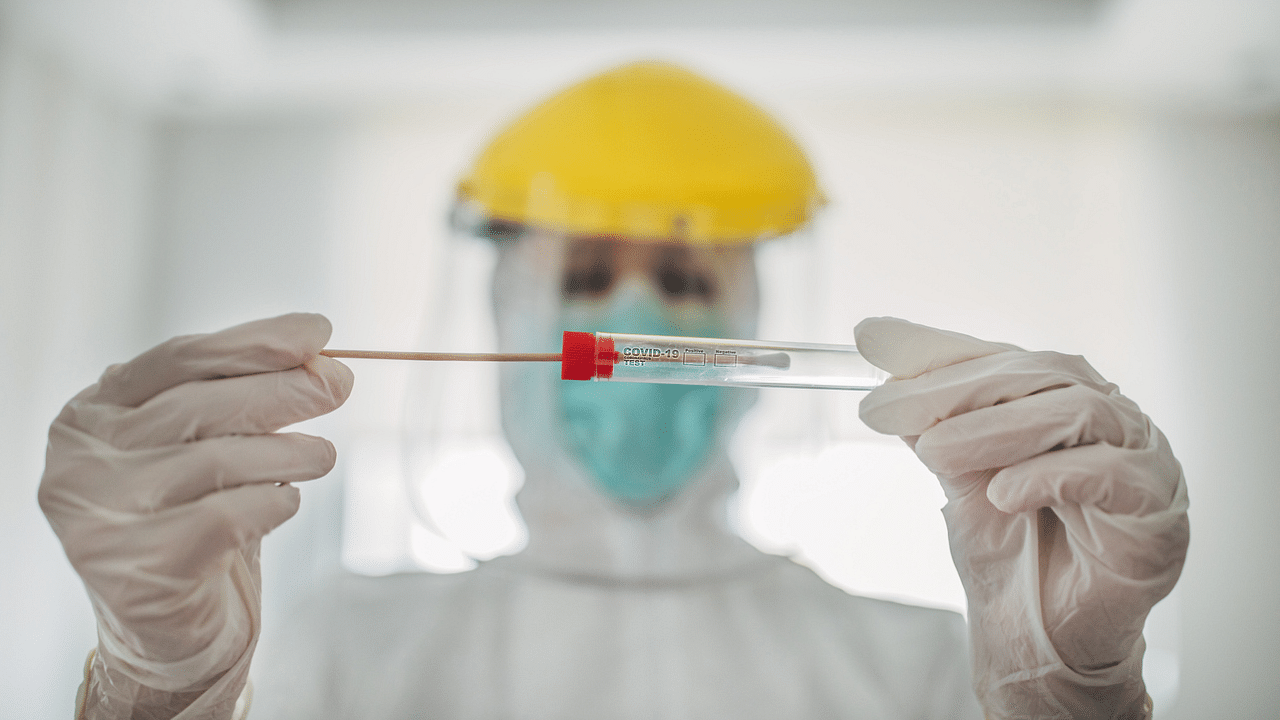
Scientists have developed a new type of Covid-19 test that combines multiple kinds of data using a low-cost sensor to analyse small volumes of saliva or blood in less than 10 minutes, an advance that may enable at-home diagnosis of the novel coronavirus infection.
The researchers, including those from the California Institute of Technology (Caltech) in the US, had previously developed wireless sensors made of graphene -- a sheet-like form of carbon -- that can monitor conditions like gout by detecting extremely low levels of specific compounds in the blood, saliva, or sweat.
In these sensors, described in the journal Matter, a plastic sheet etched with a laser generates a 3D graphene structure with tiny pores that are sensitive enough to detect compounds that are only present in very small amounts with high accuracy.
According to the study, the graphene structures are coupled with antibodies -- immune system molecules that are sensitive to specific proteins like those on the surface of the novel coronavirus SARS-CoV-2.
The new version of the sensor, named SARS-CoV-2 RapidPlex, contains antibodies and proteins that allow it to detect the presence of the novel coronavirus itself, antibodies created by the body to fight the pathogen, and chemical markers of inflammation which indicate the severity of the Covid-19 infection.
"This is the only telemedicine platform I've seen that can give information about the infection in three types of data with a single sensor," said study co-author Wei Gao from Caltech.
"In as little as a few minutes, we can simultaneously check these levels, so we get a full picture of the infection, including early infection, immunity, and severity," Gao said.
While established Covid-testing technologies usually take hours or even days to produce results, and also require expensive, complicated equipment, the researchers said the new system is simple and compact.
The scientists said they have so far tested the device only in the lab with a small number of blood and saliva samples obtained for medical research purposes from individuals who have tested positive or negative for Covid-19.
Though preliminary results indicate that the sensor is highly accurate, the researchers believe a larger-scale test with real-world patients rather than laboratory samples must be performed to definitively determine its accuracy.
They plan to test how long the sensors last with regular use and to begin testing them with hospitalised Covid-19 patients and estimate the suitability of the tests for in-home use.
"Our ultimate aim really is home use. In the following year, we plan to mail them to high-risk individuals for at-home testing. And in the future, this platform could be modified for other types of infectious disease testing at home," Gao said.